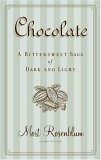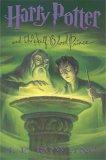Finished
Saturday
by Ian McEwan,
through a forced march, reading 30 pages per day before I could turn out my light.
The problem for me with this book was that the protagonist, Henry Perowne, has such a busy mind,
always verbalizing, always trying to get several steps ahead, to be perfect, to win.
He is, on the whole, just too good to be true. O.K., so it's Perowne's son, not Perowne, who figures
out what to do to defend his family. But apart from that, Perowne is the Man.
McEwan is famous for creepy stories set in domestic life, and seems partial to dismemberment,
so it's no big surprise that Saturday has page after page after page
of detailed brain surgery. He spent two years watching the neurosurgeon Neil Kitchen
at work in the operating theater to get the lingo and the moves.
The details of the surgeries had me cringing and (I admit it) speed-reading.
In the end, however, the amount of real-estate that the book gives to Henry Perowne's
devotion to surgery does make me a little less skeptical about the ending,
where Perowne does the moral equivalent of giving the shirt off his back to a man who
might have killed both Perowne and his wife and also raped their daughter.
The lectures on neurosurgery made me nervous that (there being two poets in the family)
some lecture on poetic form was coming. As Perowne's friend and colleague Jay says to Perowne in
another context:
|
No need to give a lecture.
|
But in the end, the poetry lecture is a relatively brief and benign, and it's on
scansion, given by Perowne's daughter. Meanwhile Perowne:
|
can't see how poetry - rather occasional work it appears, like grape picking -
can occupy a whole working life, or how such an edifice of reputation and
self-regard can rest on so little.
|
The most interesting part of the book is Perowne's visit to his mother in a nursing home.
She has lost most of her memories, including remembering that he is her son.
Her conversation was the less linear than Perowne's, and more intriguing:
|
Out here it only looks like a garden, Aunty, but it's the countryside really and you can go for miles.
When you walk here you feel lifted up, right high across the counter.
I can't manage all them plates without a brush,
but God will take care of you and see what you're going to get because it's a swimming race.
You'll squeeze through somehow.
|
As McEwan is so full of perfect details, I am happy to report he has an error: apparently Perowne and co.
should not have been using a single number for Baxter's Glasgow coma score. According to
http://www.sfar.org/scores2/glasgow2.html:
'the phrase 'GCS of 11' is essentially meaningless, and it is important to break the figure
down into its components, such as E3V3M5 = GCS 11.'
The three components of the score are:
- Eye Opening (E) (from 1 for none to 4 for spontaneous).
- Verbal Response (V) (from 1 for none to 5 for normal conversation).
- Motor Response (M) (from 1 for none to 6 for normal).
So, what was my own GCS after reading the last page of Saturday?
E2V2M4 = GCS 8.
If this rating is due entirely to the book, one could say that Saturday
causes severe brain injury.




 Best book of this quarter:
Best book of this quarter:


